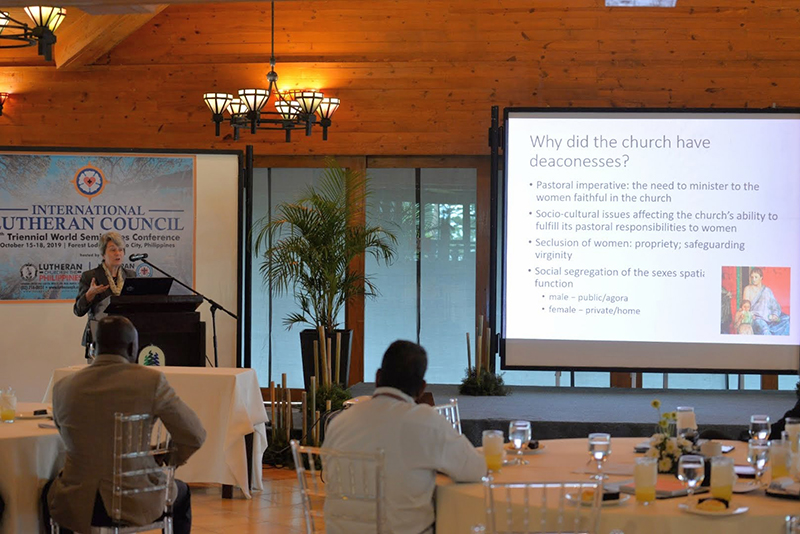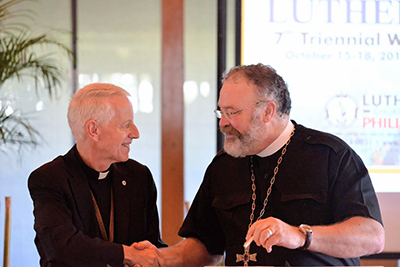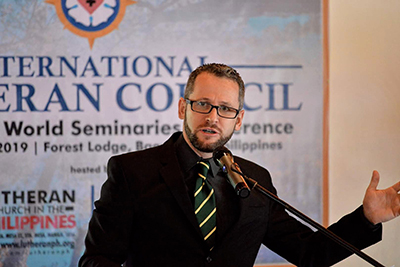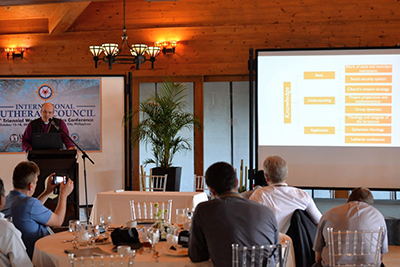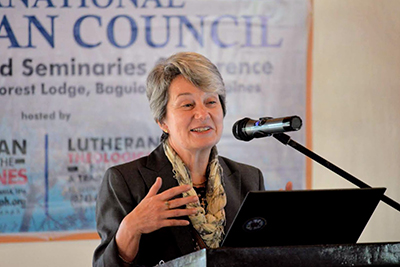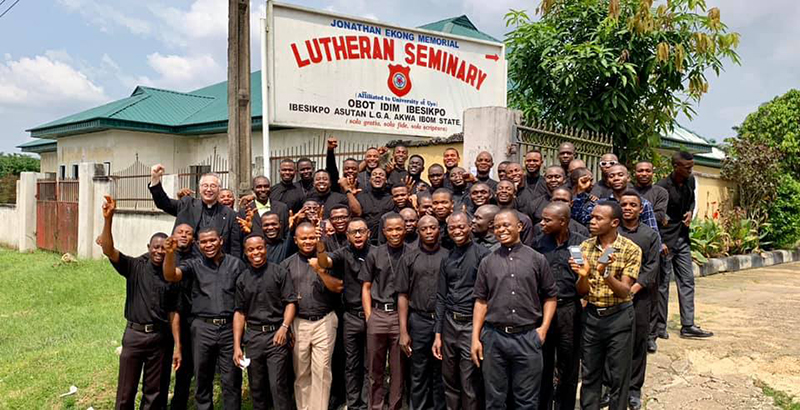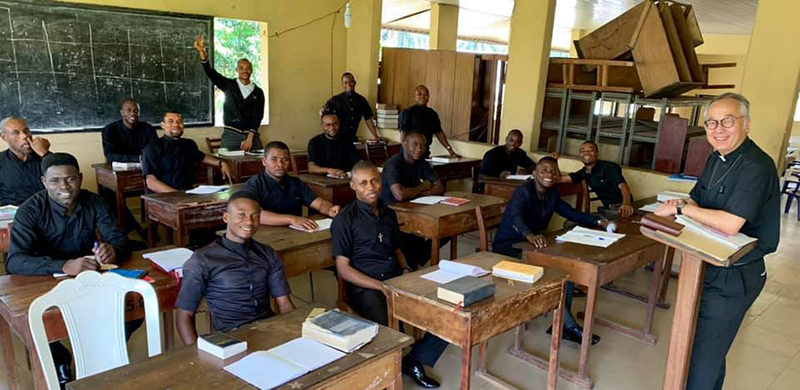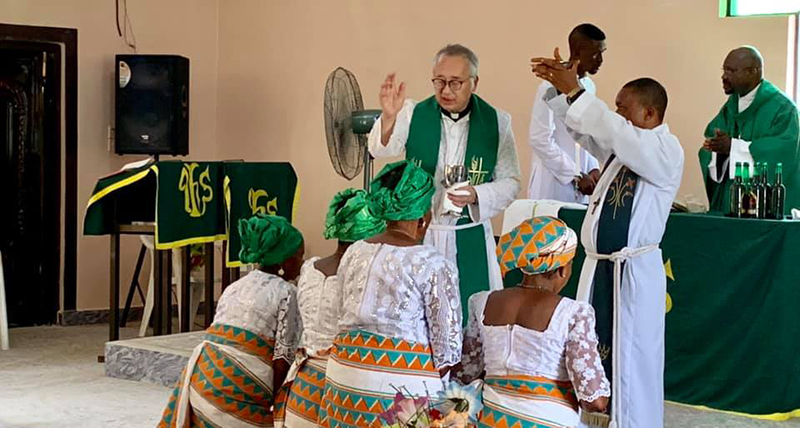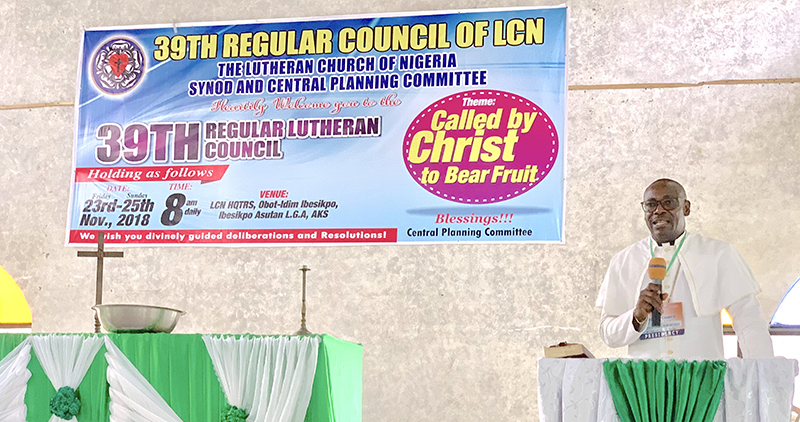 WORLD – The International Lutheran Council (ILC) is pleased to announce a new program dedicated to supporting Lutheran theological education worldwide: the International Lutheran Council Accreditation Agency (ILCAA).
WORLD – The International Lutheran Council (ILC) is pleased to announce a new program dedicated to supporting Lutheran theological education worldwide: the International Lutheran Council Accreditation Agency (ILCAA).
“Lutherans from around the world—both within and outside the International Lutheran Council—have told us that they are in need of assistance in the development of pastoral training and theological education,” explains the ILC’s General Secretary, Rev. Dr. Timothy Quill. “This new program will help equip Lutheran seminaries and colleges worldwide to offer rigorous academic theological training, grounded in the authority of Scripture and in the Lutheran Confessions.”
The ILCAA is not intended to replace existing regional governmental accreditation, but instead to complement it, providing a basis for internationally recognized confessional Lutheran theological education. A key component of this is the development of a recommended core curriculum. Accreditation standards will also address such areas as faculty, spiritual formation, student evaluation, library resources, long-term planning, administration, financial stability, and accountability.
The rollout of an internationally recognized accreditation program will also ensure that students who wish to go on to pursue higher education at another institution have transcripts from accredited institutions.
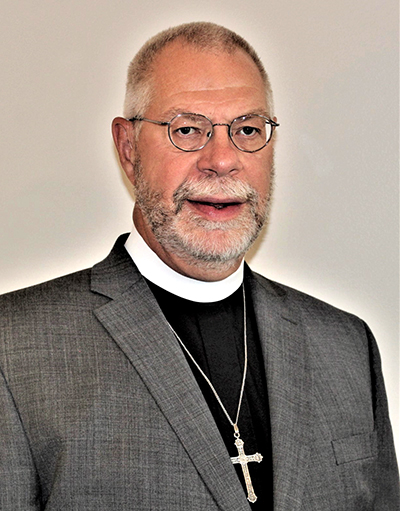
Rev. Dr. Steven Schumacher.
Spearheading the new program will be Rev. Dr. Steven Schumacher, who has accepted a call to serve as the ILCAA’s Chief Accreditation Officer. In addition to serving as a missionary with The Lutheran Church—Missouri Synod (LCMS) and as Academic Dean at the seminary of the Evangelical Lutheran Church of Ghana, Dr. Schumacher has served as an adjunct professor at Concordia Theological Seminary in Fort Wayne, Indiana since 2011. His doctoral thesis focused specifically on the question of Lutheran theological accreditation in the African context.
“It’s a joy to be joining the ILC to help strengthen the work of Lutheran seminaries and theological institutes across the world,” said Dr. Schumacher. “The ILCAA will play a major role in the renewal of global Lutheran theological education, equipping churches to train leaders and church workers faithful to the Scriptures and the Lutheran Confessions and dedicated to the proclamation of the Gospel of Jesus Christ.”
The International Lutheran Council Accreditation Agency comes in response to a resolution of the ILC’s 2019 World Seminaries Conference in the Philippines, which called for the development of a common theological curriculum for confessional Lutherans across the globe. A committee was subsequently struck to consider the question in greater detail. Members of the committee included Rev. Dr. Daniel Gard (North America); Dr. Steven Schumacher (North America; Africa); Rev. Dr. Werner Klän (Europe); and Rev. Dr. Alexey Strelstov (Eurasia). Additional advisory members included President John Donkoh of the Evangelical Lutheran Church of Ghana (Africa); The Lutheran Church—Missouri Synod’s Director of Theological Education, Rev. Dr. Arthur Just (North America); Brazil’s Rev. Dr. Gerson Linden (Latin America); President Antonio Reyes of the Lutheran Church in the Philippines (Asia); the United States of America’s Dr. James Wagner (North America); and Rev. Dr. Roland Ziegler (Chairman of the ILC Seminary Relations Committee). ILC General Secretary Quill also participated as an ex-officio member.
Following the committee’s work and recommendations, the ILC’s Board of Directors approved the creation of the ILCAA in April 2021.
Additional information on the program, including the application process, will be made available at a later date.
You can support confessional Lutheran theological education and the work of the International Lutheran Council Accreditation Agency through online giving (select “International Seminary Accreditation Program”). You may also send a cheque by mail to:
International Lutheran Council
PO Box 10149
Fort Wayne, IN 46850
———————

